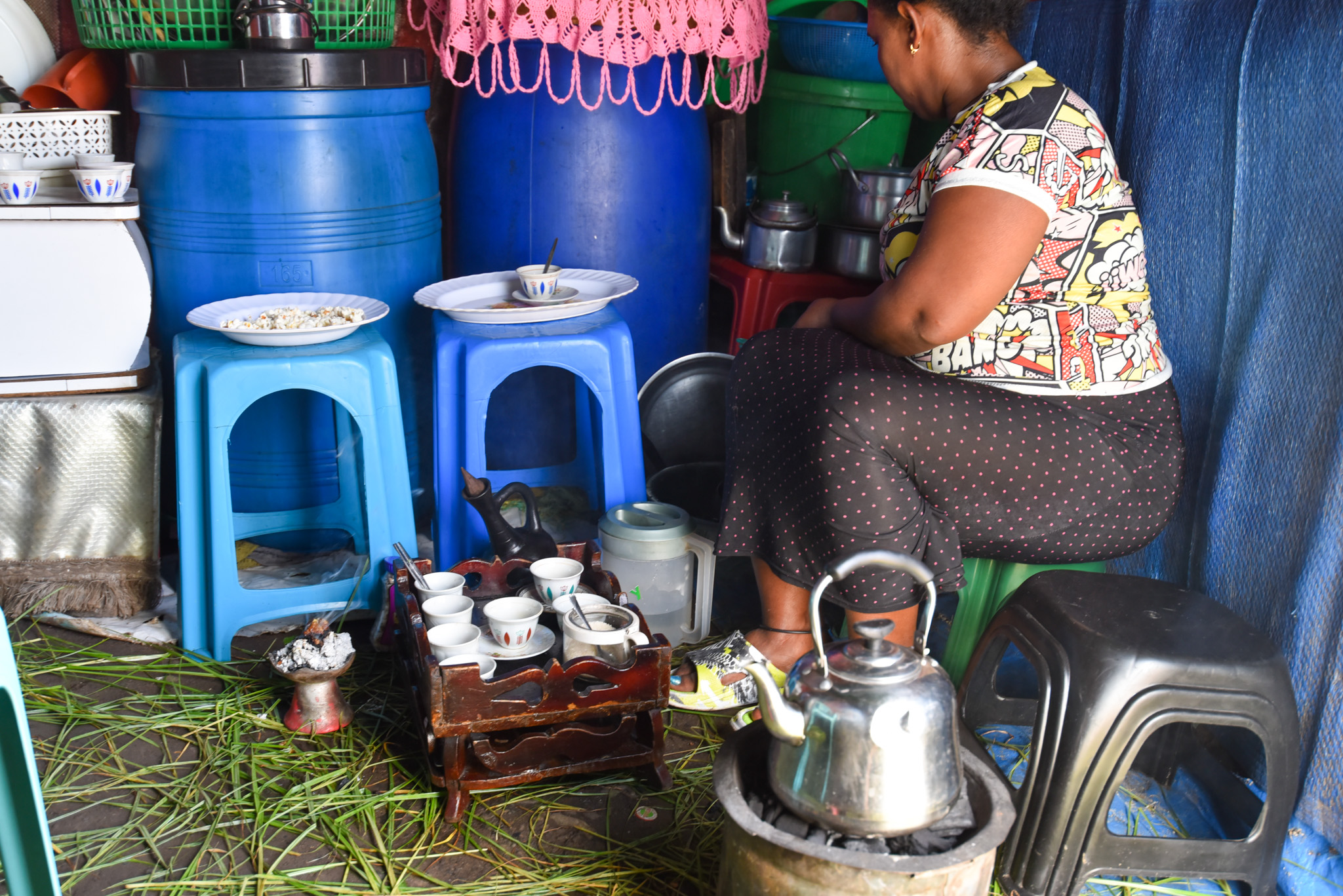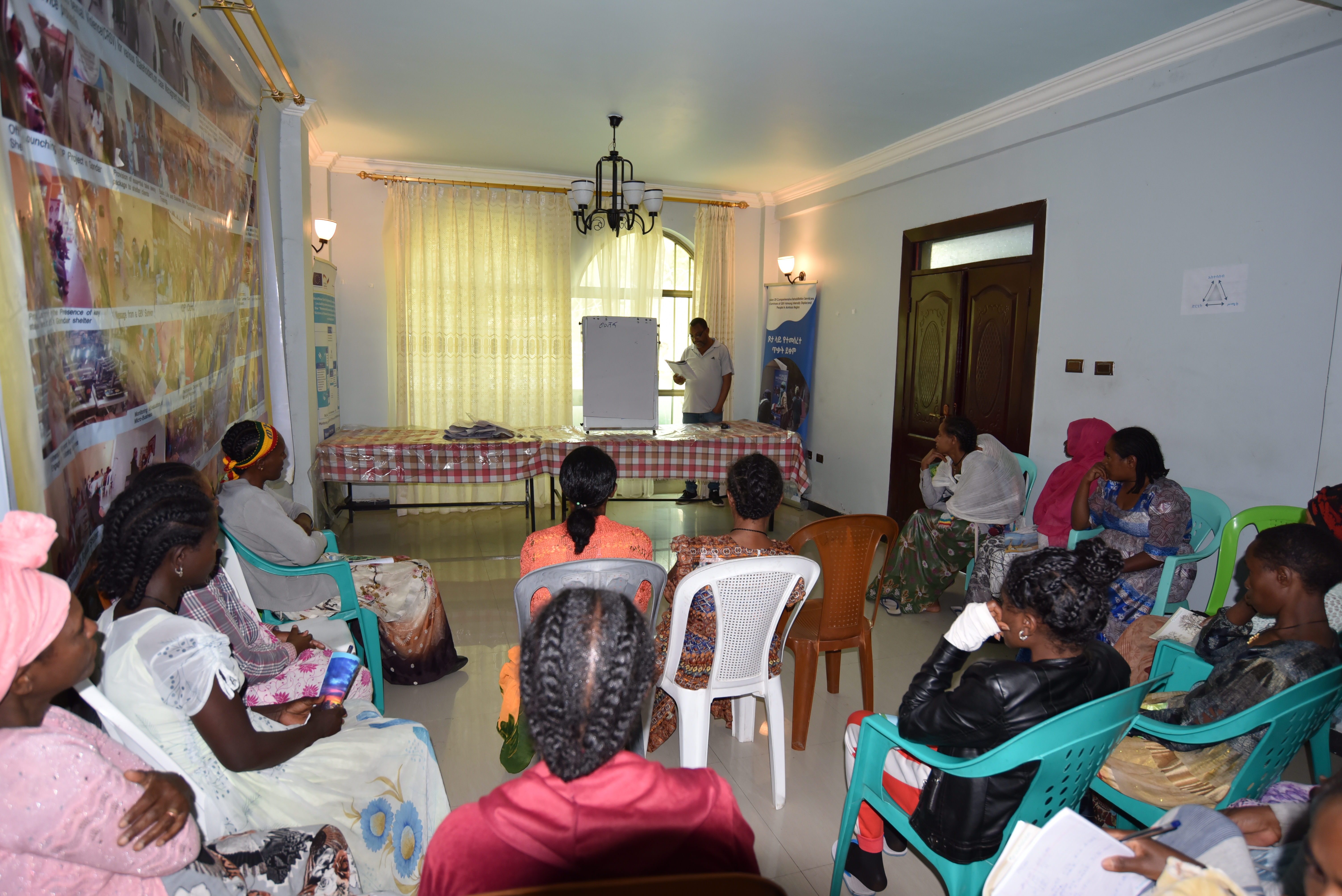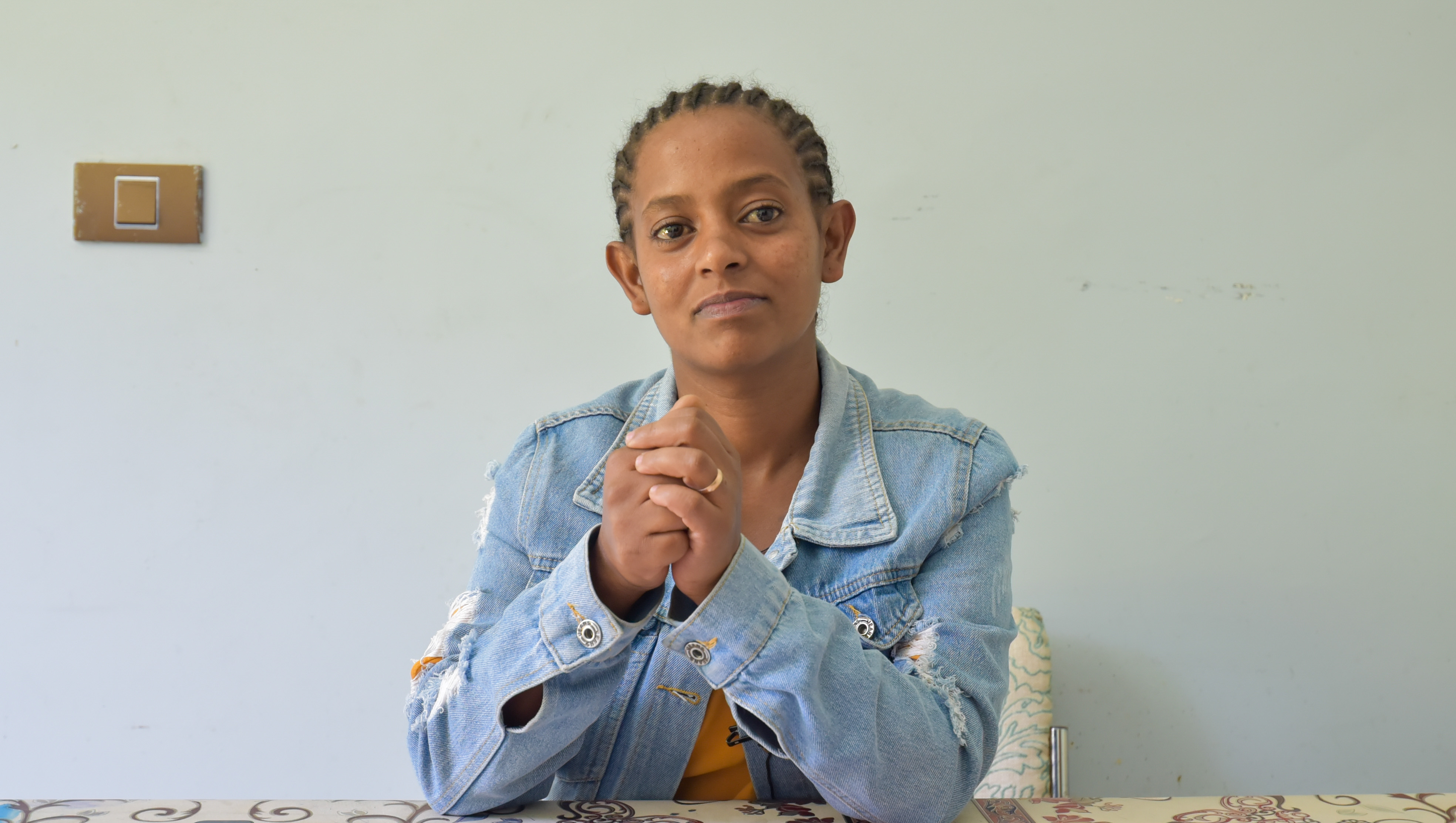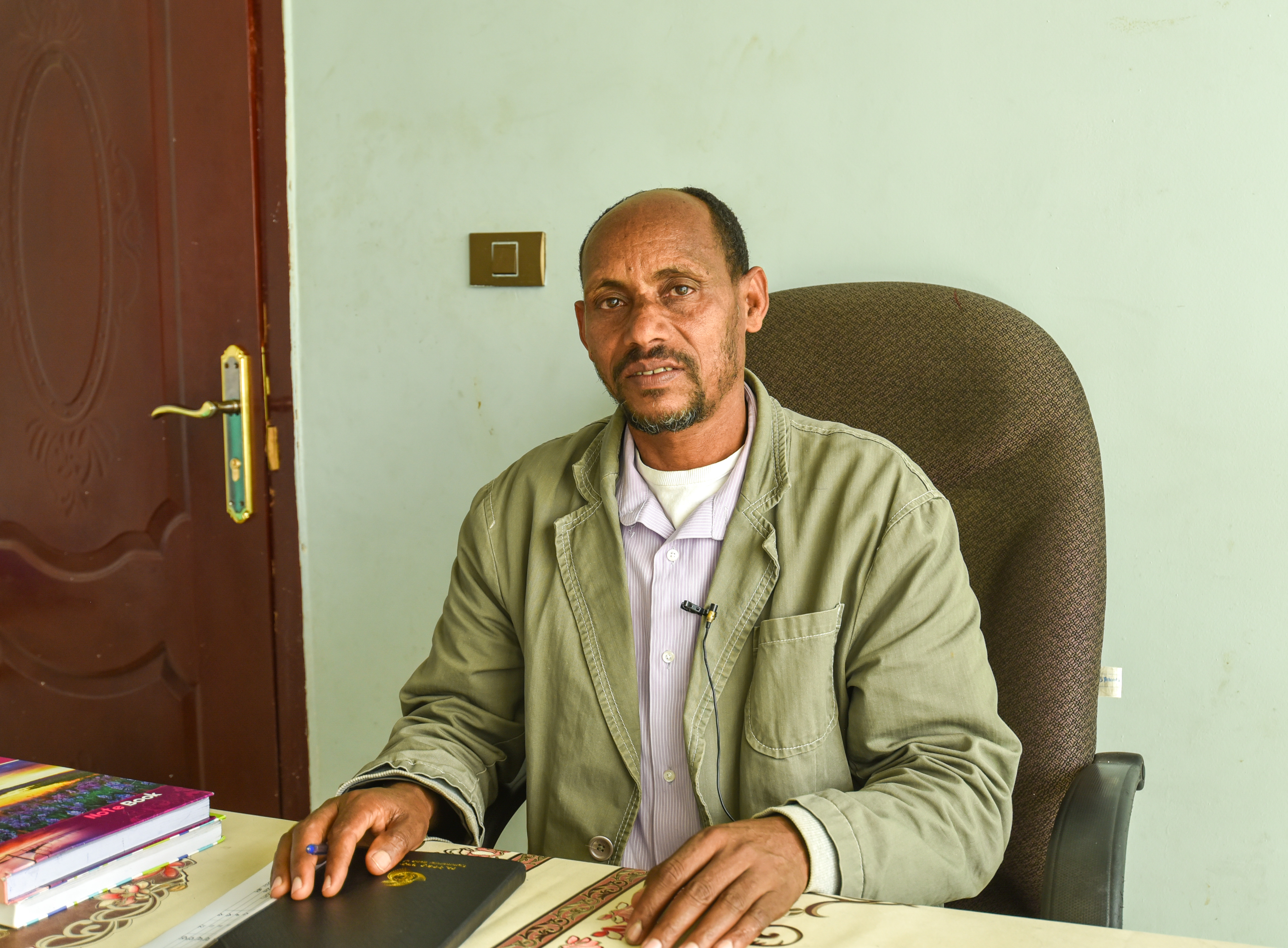Almaz was one of the 245 women reached by Good Samaritan Association’s project that provides comprehensive rehabilitation services to women and girl survivors that have experienced Conflict Related Sexual Violence (CRSV) and supported by UN Women Ethiopia. The survivors got counseling services and basic business skills training in a shelter run by GSA. Almaz was also provided with small grant to start business.
“I got seed capital to start a small business selling food, coffee, and tea. I started working here 8 months ago and slowly started to earn for sustenance, I am thankful for that. I now live outside the camp with my son, sending him to middle school. I hope to expand my business and get back to the life I used to have before the war” She spoke.
Like Almaz, Tigist Abebe was living in Tigray for 12 years, owning a restaurant there before she was displaced and came to the IDP center in Gonder. She spoke: “I lost everything, including my self-worth, when I was raped. I endured dark, depressing days for the sake of my son. The situation in the camp didn’t help. We were living in a small tent with 16 people we had never met before. The food aid was sporadic and small. I resorted to sex work to survive and feed my son."
According to Tigist, the training opportunity came at critical moment. She stayed at GSA shelter for a month with other displaced women, went through individual and group counseling as well as basic life and business skills training. She also got funding to start business of selling food and drinks. “I am now sending my son to school and live in a house I rented outside the camp. I hope to build my capital and get a bigger place” she concluded.



